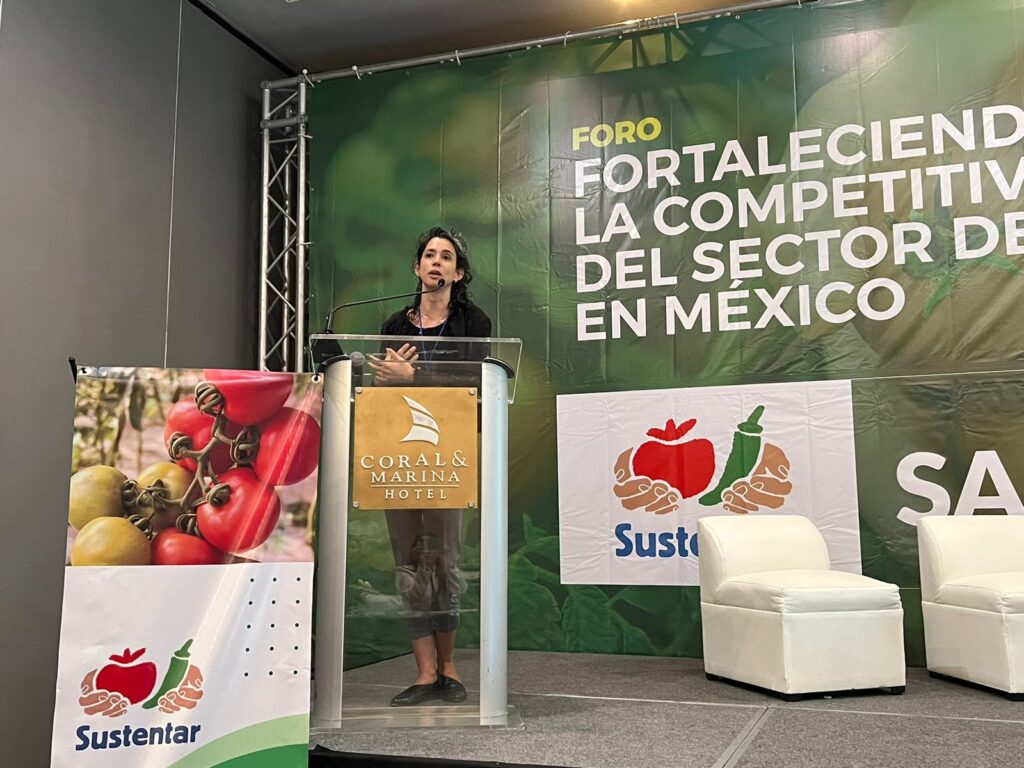Proyecto Sustentar and AHIFORES held a forum called “Strengthening the competitiveness of the tomato sector in Mexico” on October 10 and 11, 2023 in Ensenada, Baja California. As a space for open dialogue between tomato sector stakeholders at the employer level (e.g., directors, managers, and coordinators of social responsibility), the event fostered collaboration within the industry and opportunities to learn about labor compliance improvements and challenges that the industry faces.
With 50 attendees, speakers included representatives from the agriculture and tomato industry, such as the Mexican Association of Protected Vegetables (AMHPAC) and the National Council of Tomato Producers; U.S. tomato import organizations, such as the Fresh Produce Association of the Americas; representatives of companies such as Viva Orgánica, Grupo Pinos, Agrícola el Toro, Driscoll’s, Grupo Alta, and Agrícola El Rosal; as well as experts in legal matters, such as IQOM Commercial Intelligence; and presentations on social compliance, presented by the organizers, AHIFORES and Social Accountability International.
On the second day, workshops were provided on management systems and social compliance, good practices in ethical recruitment, and engagement with communities and stakeholders.
Proyecto Sustentar seeks to work with tomato and chile producers, processors and buyers in Baja California and Baja California Sur to ensure a thorough understanding and so employers can effectively comply with local and international labor standards. At no cost to the companies, the project will conduct a gap analysis to measure the management systems and working conditions and to identify root cause of persistent problems. Through the introduction of management and remediation systems, Sustentar will help companies mitigate the risks of poor working conditions and while at the same time ensuring workers are adequately protected.
If you are interested in learning more or getting involved, please contact proyectosustentar@sa-intl.org

Funding is provided by the United States Department of Labor under cooperative agreement number IL-38036-22-75-K. 100% of the total costs of the project is financed with USG federal funds, for a total of $5,000,000 dollars.
